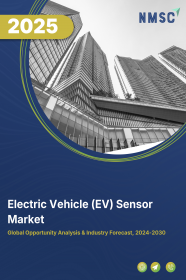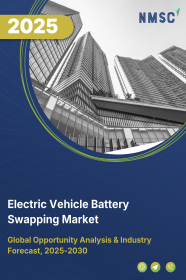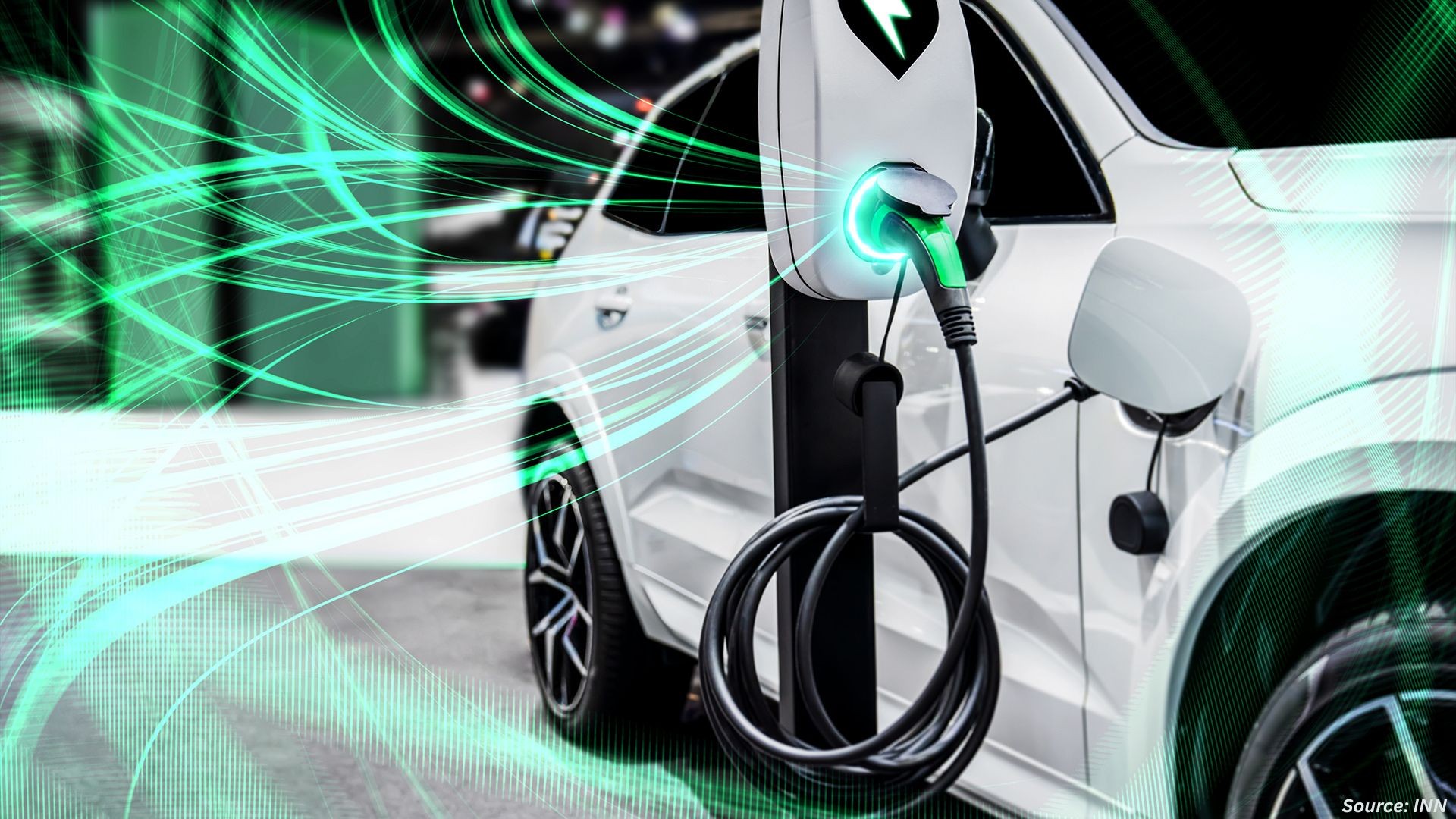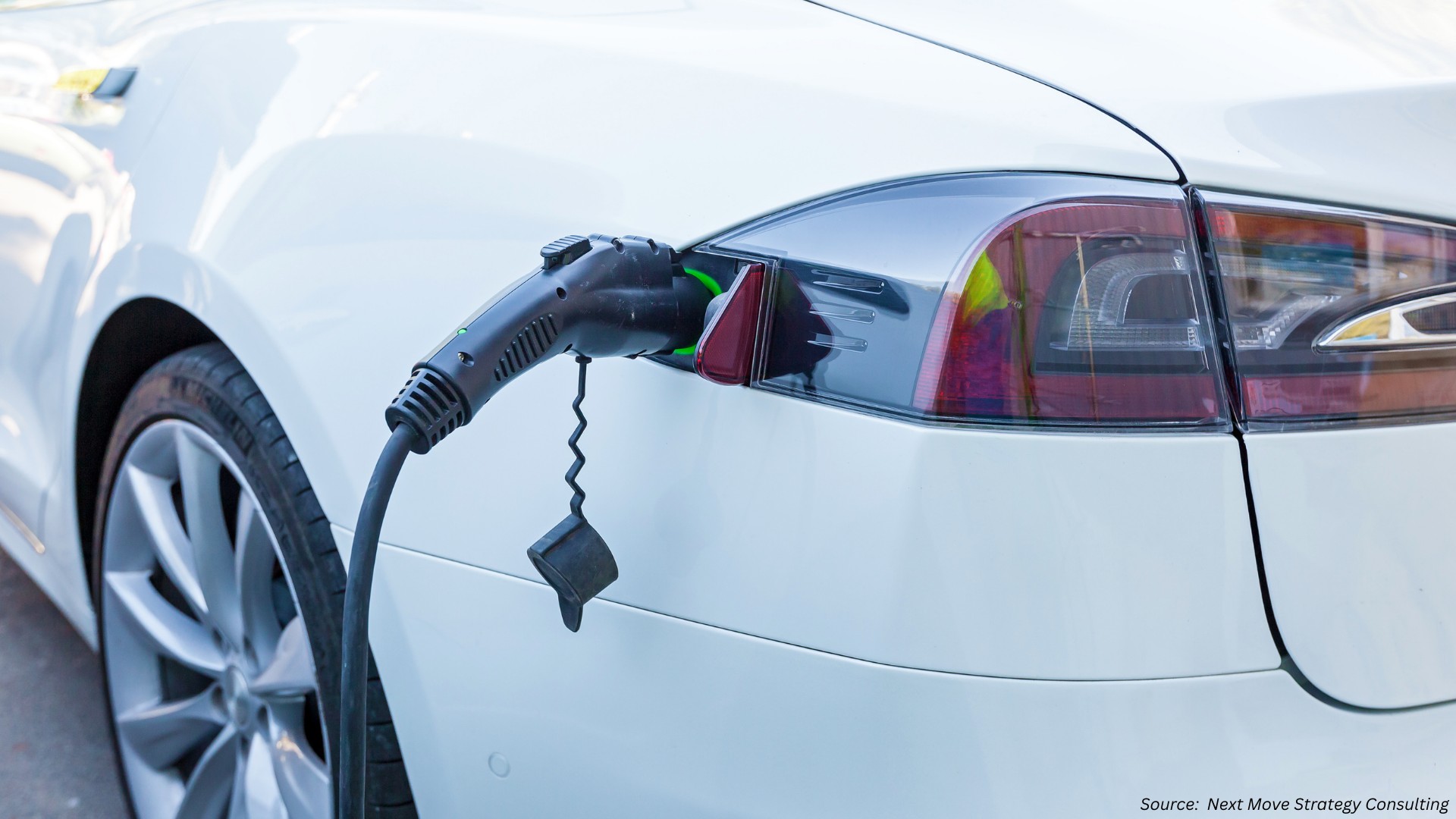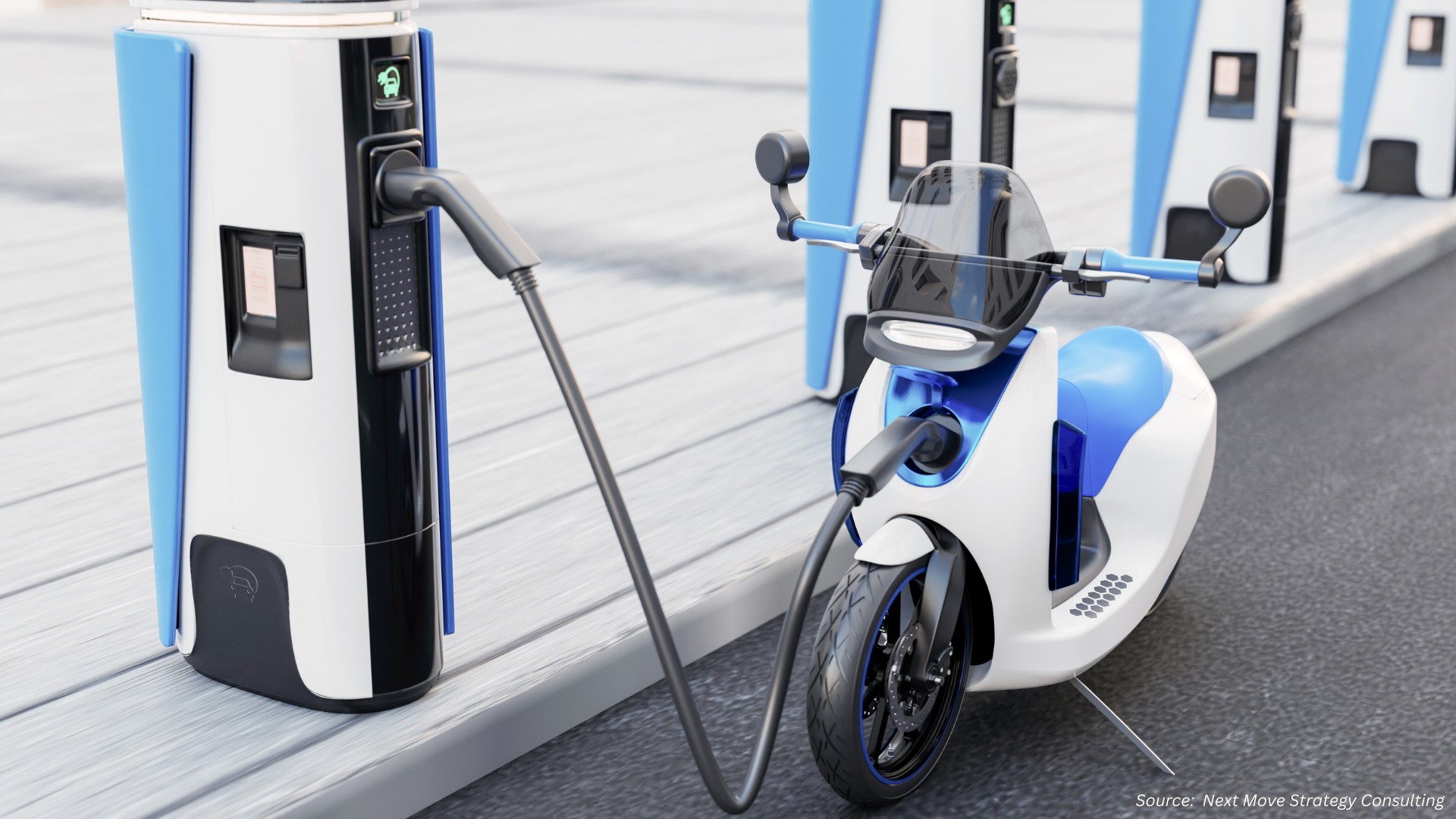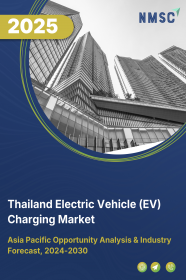
Thailand Electric Vehicle (EV) Charging Market by Type of Charger (AC Chargers, and DC Chargers (22 kW to 350 kW)), by Charging Speed (Level 1, Level 2, Level 3), by Connector Type (Type 1, Type 2, CCS, CHAdeMO, and Others), by Installation (Fixed, and Portable), by End User (Commercial, Residential)– Opportunity Analysis and Industry Forecast 2023–2030.
Industry: Automotive & Transportation | Publish Date: 20-Oct-2025 | No of Pages: 180 | No. of Tables: 120 | No. of Figures: 65 | Format: PDF | Report Code : AT872
Market Definition
Thailand Electric Vehicle (EV) Charging Market was valued at USD 203.52 million in 2022, and is predicted to reach USD 1545 million by 2030, with a CAGR of 29.5% from 2023 to 2030. Electric vehicle chargers are characterized by the rate at which they deliver energy to the vehicle's battery. They serve as a vital infrastructure connecting plug-in electric vehicles to electrical outlets for the purpose of recharging the vehicle's battery. These chargers facilitate the charging process by supplying the necessary electrical energy to the EV's battery.
Charging stations are compatible with electric vehicles, neighborhood electric vehicles (NEVs), and plug-in hybrids, allowing them to connect to an electrical source for charging. Some charging stations come equipped with advanced functionalities such as smart meters, cellular connectivity, and network access.
The charging of EVs can be carried out through several levels of charging such as level 1, level 2, and level 3. The higher the level of charging, the faster the charging process causing more power to be delivered to the vehicle. The use of electric vehicles significantly reduces the carbon footprints released into the atmosphere, which contain toxic gas. The growing threat of carbon emissions and other harmful gases stemming from transportation has triggered the vital necessity of adopting electric vehicles.
In addition, the penetration of EV charging is high in commercial spaces as compared to residential ones. Long-distance trips would benefit from ultra-fast charging capabilities made possible by public charging infrastructure.
However, EV chargers for residential spaces offer significant growth potential as they are affordable and more convenient for charging electric vehicles as compared to commercial charging stations.
Innovation and Collaboration Strengthen Thailand’s EV Charging Landscape
Thailand’s EV charging sector is witnessing rapid growth as market participants focus on launching advanced charging solutions and forging collaborative agreements. These efforts are aimed at expanding the charging network, increasing operational efficiency, and reducing charging times to align with consumer expectations. The introduction of user-friendly platforms, faster charging capabilities, and integrated service models is further improving the appeal of EV ownership across the country.
Strategic partnerships between technology developers, charging infrastructure providers, and energy companies are playing a crucial role in this transformation. By combining resources and expertise, these alliances are enabling large-scale deployment of charging stations in high-demand areas and along key transport corridors. This coordinated market approach is helping to build a reliable and future-ready charging infrastructure, positioning Thailand as a competitive player in the regional EV market.
Product Launches and Strategic Partnerships Drive Market Growth
The expansion of Thailand’s EV charging market is being accelerated by active engagement from key industry participants introducing new products and forming strategic alliances. These initiatives aim to enhance charging accessibility, improve network coverage, and deliver faster, more efficient charging solutions to meet the needs of a growing EV user base. Continuous innovation in charging technologies, including higher-capacity fast chargers and integrated payment systems, is making EV ownership more practical and attractive for consumers.
Collaborations between manufacturers, infrastructure developers, and service providers are helping to create a more cohesive charging ecosystem across the country. Such partnerships are enabling the rollout of both public and private charging stations in urban centers, along highways, and in tourism-heavy areas. These coordinated efforts are expected to accelerate the pace of infrastructure deployment, supporting Thailand’s long-term vision of becoming a regional leader in electric mobility.
High Setup Costs of Fast Chargers Restrain Market Expansion
The high upfront cost of installing Level 3 and ultra-fast charging stations continues to be one of the main barriers to the rapid expansion of Thailand’s EV charging network. While slow and semi-fast chargers are more affordable, they require significantly longer charging times, often ranging from six to sixteen hours for a full charge. This is in sharp contrast to the quick refueling times of conventional fuel vehicles, which consumers are accustomed to, making fast-charging capabilities a key expectation for EV adoption.
Although fast chargers that can replenish an EV battery in under 30 minutes are in high demand, the investment required for equipment, grid upgrades, and maintenance can be substantial. For potential operators, these costs may delay large-scale deployments, especially in areas with lower EV penetration. This financial hurdle could slow the pace of infrastructure development unless offset by targeted incentives, innovative financing models, or shared investment strategies.
Growing Potential of Vehicle-to-Grid (V2G) Technology in Thailand
Vehicle-to-Grid (V2G) technology is emerging as a promising innovation for Thailand’s EV ecosystem, enabling two-way energy flow between electric vehicles and the power grid. This approach allows EVs to store excess electricity and feed it back during peak demand, enhancing grid stability while offering cost-saving opportunities for vehicle owners. As renewable energy adoption increases, V2G integration could play a crucial role in balancing supply and demand across the national grid.
The market outlook for V2G infrastructure in Thailand is positive, with pilot projects and policy interest signaling early momentum. While installation and technology costs remain relatively high compared to standard charging solutions, the potential long-term benefits—such as improved energy efficiency, revenue generation for EV owners, and reduced pressure on grid resources—are likely to attract both public and private investment. This creates opportunities for equipment manufacturers, software providers, and utility companies to develop advanced systems that support the widespread rollout of V2G solutions in the coming years.
Competitive Landscape
The Thailand Electric Vehicle (EV) Charging industry includes several market players such as ENPHASE, Tesla, Siemens AG, Delta Electronics, SHINDENGEN, ABB Ltd, EGAT, Juicebox, Charge+, Energy Absolute Public Company Limited (EA Anywhere), and Others.
Key Benefits
-
The Thailand Electric Vehicle (EV) Charging market report provides a quantitative analysis of the current market and estimations through 2023-2030 that assists in identifying the prevailing market opportunities to capitalize on.
-
The study comprises a deep dive analysis of the market trend including the current and future trends for depicting the prevalent investment pockets in the market.
-
The information related to key drivers, restraints, and opportunities and their impact on the market is provided in the report.
-
The competitive analysis of the market players along with their market share in the Thailand Electric Vehicle (EV) Charging market.
-
The SWOT analysis and Porter’s Five Forces model are elaborated in the study.
-
Value chain analysis in the market study provides a clear picture of the stakeholders’ roles.
Thailand Electric Vehicle (EV) Charging Market Key Segments
By Type of Charger
-
AC Chargers
-
Mode 1 (2.3 kW)
-
Mode 2 (2.3 kW)
-
Mode 3 (3.7 kW to 22 kW)
-
-
DC Chargers (22 kW to 350 kW)
By Charging Speed
-
Level 1
-
Level 2
-
Level 3
By Connector Type
-
Type 1
-
Type 2
-
CCS
-
CHAdeMO
-
Others
By Installation
-
Fixed
-
Portable
By End User
-
Commercial
-
Commercial Public EV Charging Station
-
Highway Charging Stations
-
Fleet Charging Stations
-
Workplace Charging Stations
-
-
Commercial Private EV Charging Stations
-
-
Residential
-
Private Homes
-
Appartments
-
Key Players
-
ENPHASE
-
Tesla
-
Siemens AG
-
Delta Electronics
-
SHINDENGEN
-
ABB Ltd
-
EGAT
-
Juicebox
-
Charge+
-
Energy Absolute Public Company Limited (EA Anywhere)
Report Scope and Segmentation
|
Parameters |
Details |
|
Market Size in 2022 |
USD 203.52 Million |
|
Market Volume in 2022 |
20 Thousand Units |
|
Revenue Forecast in 2030 |
USD 1545 Million |
|
Growth Rate |
CAGR of 29.5% from 2023 to 2030 |
|
Analysis Period |
2022–2030 |
|
Base Year Considered |
2022 |
|
Forecast Period |
2023–2030 |
|
Market Size Estimation |
Million (USD) |
|
Growth Factors |
|
|
Companies Profiled |
10 |
|
Market Share |
Available for 10 companies |
|
Customization Scope |
Free customization (equivalent up to 80 working hours of analysts) after purchase. Addition or alteration to country, regional, and segment scope. |
|
Pricing and Purchase Options |
Avail customized purchase options to meet your exact research needs. |

















 Speak to Our Analyst
Speak to Our Analyst



